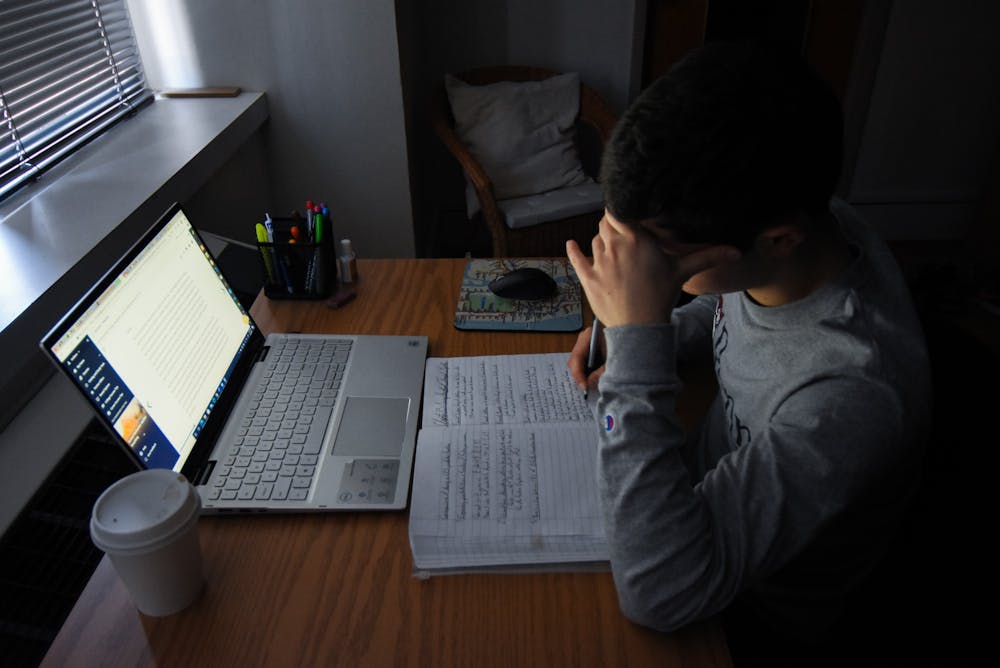I was always perplexed when I looked up “University of Pennsylvania” just to find that their expected graduation rate is 4-6 years. 4-6 years? Don’t students graduate in four?
That small statistic stayed in my mind and replayed itself in the College Office seconds before the ink dried on my leave of absence agreement. Mind on fire, I had made the most important decision in all 19 years of my life: taking a break.
In my interview with her, Rebecca Schept, pre-major advisor for the College of Arts and Sciences, elaborated on Penn’s leave of absence policy. She said, “At Penn, there is only one type of leave of absence, but students take leaves for many reasons. Some of the most common reasons include personal health issues, family concerns, career and internship opportunities, and travel. All leaves appear the same on a student's transcript with the words ‘leave of absence’ and the date the leave was taken.”
For most highly aided students, the main concern in college is less about paying for the Ivy-League education and more about making the right choice on what to study during their four years here. The pressure to choose a more profitable major is insurmountable. In a Inquiries Journal study, researchers found that as the unemployment rate increases for a given major, the likelihood of first generation students choosing that major decreases. This meant that for me, I had to prefigure the rest of my life in the next four years, and the next decade of my professional career.
Although this career crisis is not exclusive to FGLI students, the pressure is uniquely intensified by under-resourced students’ lack of awareness of the resources readily available to them.
Yes, every first year must get over the obstacle of adjusting to a new environment and finding their people, but based on personal anecdotes from my peers, it is simply not enough to rely on institutional support. As an FGLI student, some of my best support systems have been ones that I had to build beyond the isolated spheres of Claudia Cohen Hall — slowly and over time.
When I took my leave of absence, I was equipped to examine my situation with a lot more clarity. On my gap semester I sought therapy and medication, and realized how important it was to take a step back — and I am not alone. “Students who take a leave during their time at Penn report that their time away from was a helpful and useful experience,” said Schept.
Now that I am back on campus, I still bite my tongue about engaging with campus resources. My own experiences with Counseling and Psychological Services (CAPS) have been like what many students have experienced on this campus — a temporary bandage at best. Needing support beyond CAPS is an issue broader than the scope of this article, but I will say this — there is also a danger in lumping the rest of the campus resources in with a singular experience.
SEE MORE FROM CATHY LI:
And though I am apprehensive about some institutional resources, I was floored by the support coming from The College Office and from my pre-major advisor. If anything, I wish I knew about this support earlier, that the idea of a leave of absence is not off-limits to first-generation, low-income students. Schept says this about the general policies for taking a leave of absence, as I was confused when I first took one. Do I contact my professors? Who is the first point of contact?
Schept states, “In general, students will talk through the process of taking a leave with their academic advisor. The advisor will help the student weigh the pros and cons of taking time away and guide them through the steps to officially put the leave in place. The College website has a list of policies pertaining to leaves and returns and also provides students with checklists to ease their transition.” When a student comes back from their leave of absence, they will meet with an advisor within the first few weeks of their semester back. Schept continues, “That advisor will make sure the student is connected to the appropriate campus resources and will provide helpful guidance for reintegrating with the Penn community. Penn also has a returning student organization that helps build community among students who have returned from time away.”
Not everyone needs to take a gap semester: There are certainly many ways to take a break from school. Exploring Philadelphia is a great way to travel outside the Penn Bubble. But for me, I wish I utilized more of the resources available to me on campus, even if not all of them benefitted me equally. College can be so lonely and isolating, especially if you are not ready to navigate it, and so if taking a leave sounds like a viable, healthy opportunity for you, take it.
CATHY LI is a College sophomore studying English and design from Brooklyn, N.Y. Her email address is licathy@sas.upenn.edu.









